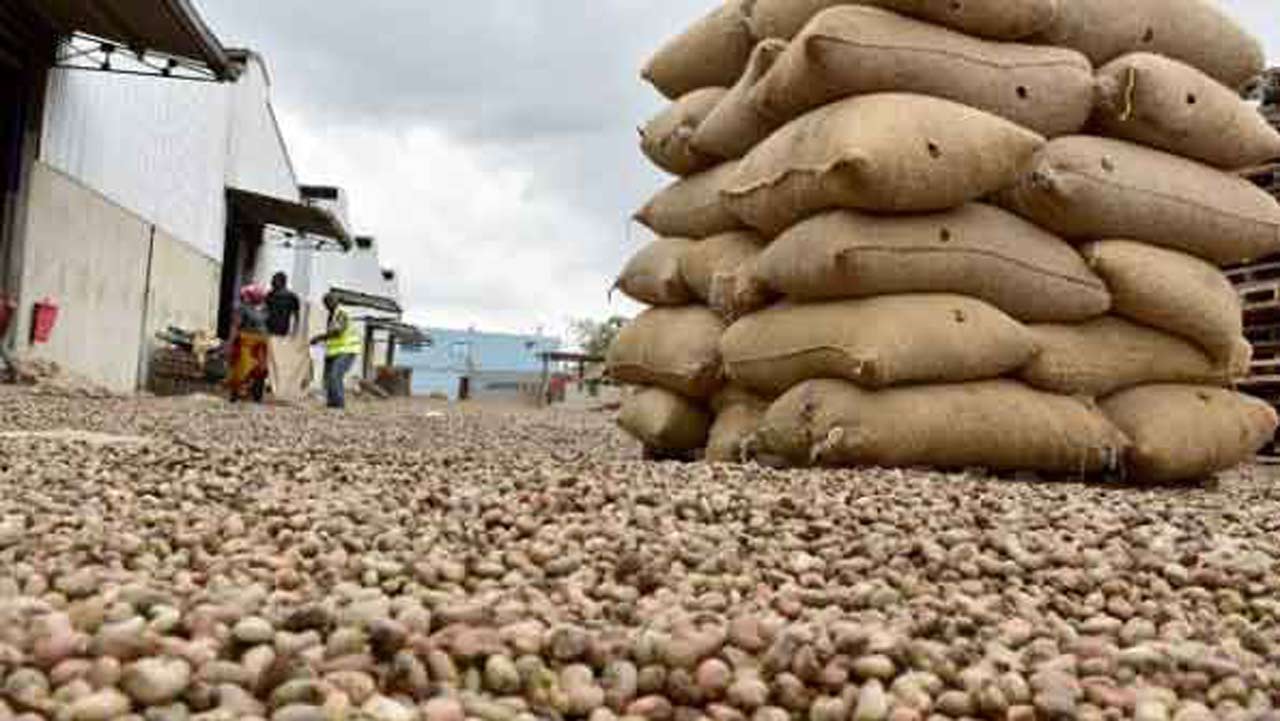
• I have Lost About N1.95m—Watermelon Farmer
• Exporters Losing Up To 70% Of Their Products—Sawyer
• It Has Exacted Devastating Impact On Our Business—Iyama
This doesn’t appear to be the best of time for the agricultural produce export sector, going by the lockdown of economic activities across the world, especially Europe, as a result of the coronavirus pandemic.
As demand for the commodities continues to flatten, ground checks revealed that huge losses are incurred daily, as the agro commodity exporters have been constrained to sell at discounted prices, far below the farm gate costs.
This development cuts across commodities like cocoa, cashew, hibiscus, fruits and other crops in high demand at the international market.
In the case of cocoa, for instance, lack of patronage is adversely affecting stored cocoa beans as it causes continuous loss of weight over time, resulting in losses in monetary terms despite quality assurance, as commodity price is often determined by its weight.
A watermelon farmer, Umar Kalo Vsla, based in Damana community, Birnin Kebbi Local Government Area of Kebbi State, who sells to neighbouring countries, said he has incurred losses to the tune of N1.95m, as there are no buyers and the goods end up as wastage.
“I am into watermelon production for the past five years and sold with good price. Many buyers come from various places across the country and neigbouring countries like Benin Republic and Niger Republic to buy from me.
“But due to the COVID-19 outbreak, the buyers are no longer coming, and as such our produce are getting wasted, putting us into a terrible and devastating situation. I invested a lot of money to cultivate the farm. I also sold the two bulls I normally use during wet-season farming for ridges; I sold some of my paddy rice and invested it into the cultivation of the watermelon. I expected a profit of about N1.5m to N2m, but ended up getting a profit of N50, 000. With this current situation, I am begging the government to come to my aid.”
The Executive Secretary of the Agricultural Fresh Produce Growers and Exporters Association of Nigeria (AFGEAN), Mr. Akin Sawyerr, who confirmed that the pandemic had already exacted a devastating impact on the export business, said the situation is pretty dire.
“Logistics had become a major challenge because of the closure of markets and the lockdown across the country, which is limiting movement of supplies and customers.
“It is difficult to quantify as most exporters are not keeping data on spoilage. Many are simply trying to survive the lockdown. High value and perishable commodities are the main issues.”
Sawyer confirmed that exporters are currently losing up to 70 per cent of their products, either at the farm or aggregation levels, saying: “Transportation costs have doubled in some instances and with the closure of the airports, only dedicated cargo flights are able to transport goods severely, limiting export opportunities and air transport costs.
“All businesses across the agric supply chains are suffering and many will go under since farm hands cannot get to work, input supplies have been curtailed and planning has become impossible. This crisis has come at the beginning of the planting season. So, many farmers cannot produce, even for post COVID-19 needs.”
National President of the Federation of Agricultural Commodity Association (FACAN), Dr. Victor Iyama, who rued the development, said agro exporters had been badly affected, warning that the severe foreign exchange losses to the country would worsen the situation.
Iyama said the COVID-19 pandemic had already exacted a devastating impact on the export business, especially agricultural produce.
“The truth is that it is going to affect so many of us because the buyers are not even buying because there’s lockdown all over the country and all over the world.
“And there are no demands and even where the terminal markets are open like in cocoa, for example, you can see that the price has really nosedived- say the cocoa that most of us have bought for N960, 000 plus FOB (Free on Board) charges that is going for over N1m, if you sell today, you will lose nothing less than between N350, 000 to N400, 000, how do you do that?
“Apart from the price nose-diving, there’s going to be serious short weight because the longer it stays, the longer it loses weight. Of course, you can still try to keep it in such a way that the quality will not deteriorate but definitely it will lose weight.
“Many of us in the sector look at people who have stocked ginger, cocoa and other crops because the thing happened suddenly. We are still in the midst of the season, so only a few farmers will be affected as most of us had already taken the goods off the farmers.”
Iyama said the pandemic is a wake-up call to the government to pursue its plan of diversifying the economy, noting that agriculture alone could guarantee over $100b revenue yearly if government is ready to do the needful.
To mitigate the losses incurred by the exporters, Iyama said government could help minimise the losses to stakeholders in the business by giving at least a 50 per cent rebate after ascertaining the authenticity of goods kept in warehouses.
“Government can also use goods as collateral to give exporters soft loans, which is interest-free to help mitigate the situation, as well as enable them to buy more to blend and sell.”
To Sawyer, government needs to ease the movement of farm hands, input suppliers and food distributors, to mitigate the effect of the pandemic on the country’s economy. ”Farmers and those in the value chain will need appropriate palliatives to remain in business due to the huge losses they have incurred.”






